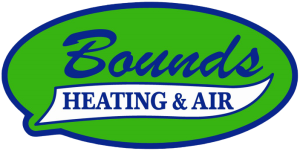Is Your AC Ready for a Heatwave? Signs It’s Not
Is Your AC Ready for a Heatwave? Signs It’s Not
When summer temperatures soar, a poorly functioning AC can quickly make your home uncomfortable. Catching problems early can help you stay cool, avoid high energy costs, and prevent expensive breakdowns. Here are five signs your air conditioner might not be ready for the next heatwave and why it’s time to schedule an AC maintenance checkup.
1. Weak or Warm Airflow From Vents
If your vents are blowing warm air or there’s barely any airflow, your system may be struggling. This can be due to a dirty air filter, low refrigerant, or even a failing thermostat. These issues often worsen over time, so don’t ignore them. Routine maintenance can resolve these common issues. However, complex tasks like calibrating the thermostat require professional attention.
2. Odd Sounds Are Coming From the Unit
Hearing rattling, buzzing, clanking, or grinding from your AC? Those sounds are your unit’s way of telling you something’s wrong. These noises could mean loose components requiring lubrication, broken motor bearings, or more serious internal damage. Scheduling an AC maintenance checkup allows a technician to tighten, clean, and repair what’s needed before it turns into a costly repair.
3. Foul or Musty Smells
Your AC shouldn’t produce any unpleasant odors. If you notice a moldy, musty, or burning smell, it could mean mold in your ductwork or an electrical problem within the unit. These issues can affect air quality and safety. Scheduled maintenance helps clear out debris, detect hazards early, and keep your system running safely and efficiently.
4. Spike in Your Energy Bill
A sudden increase in your electric bill, even if your AC usage hasn’t changed, is a telltale sign of inefficiency. Dirty coils, clogged filters, or mechanical issues could be causing your unit to work harder than necessary. A thorough AC maintenance checkup helps your system run efficiently, controlling energy costs.
5. Sticky, Humid Feeling Indoors
If your home feels damp and uncomfortable even when the AC is on, your unit may not be dehumidifying properly. Poor humidity control can promote mold growth and reduce comfort. An HVAC professional can adjust your system for better performance and indoor air quality.
Stay Cool With a Professional Checkup
Don’t wait for your AC to fail during the hottest days of the year. If you’ve noticed any of these warning signs, it’s time to act. Schedule an AC maintenance checkup with Bounds Heating & Air to ensure your system is ready to keep you cool, comfortable, and safe all summer.


